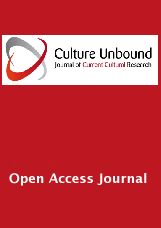Mobile Misfortune
 This article examines how the emergent cocaine trade in Bissau, the capital of the West African country of Guinea-Bissau, has become entangled with and trickled into the life-worlds, hopes and fears of the city’s many impoverished young men.
This article examines how the emergent cocaine trade in Bissau, the capital of the West African country of Guinea-Bissau, has become entangled with and trickled into the life-worlds, hopes and fears of the city’s many impoverished young men.
The article is divided into two parts. While the first part looks at the predicament of youth and the hope of migration in Bissau, the second illuminates the anguish of deportation and the despair of being forcefully ‘displaced back home’.
Following in the footsteps of the young men who navigate the cocaine trade in order to obtain better lives for themselves and their families, it shows how involvement in the cocaine trade is both a curse and a catalyst. Though trading the drug may facilitate migration and mobility, generating social being and worth in the process, it is an activity that is haunted by the threat of deportation and the termination of the mobility it enables. This article thus looks at the motives and manner in which young men in Bissau become caught up in transnational flows of cocaine. It shows how motion is emotionally anchored and affectively bound: tied to and directed toward a feeling of worth and realisation of being, and how migration from the global South may has negative potentiality as an end-point via the ascription of illegality and condition of deportability that shade it.
Henrik Vigh: "Mobile Misfortune" in Culture Unbound vol 7; 2015; Linköping University Electronic Press
